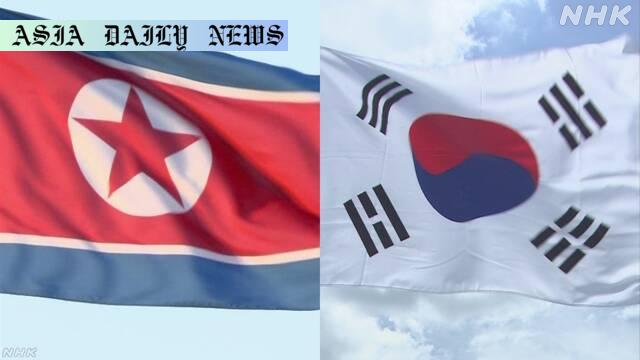Inter-Korean Relations: South Korea suspends broadcasts to restore trust in Pyongyang.
South Korea halts loudspeaker broadcasts to Pyongyang near the border.
Pyongyang stops noise broadcasts for the first time in weeks.
Report hints at steps to potentially restore military agreements.
Focus shifts to North Korea’s response to Seoul’s changed stance.

Introduction: A Turning Point in Inter-Korean Relations
In a promising move for regional peace, South Korea has taken a significant step toward restoring trust and easing tensions with North Korea. President Lee Jae-myung’s administration has ordered the suspension of loudspeaker broadcasts near the Demilitarized Zone (DMZ), a measure aimed at softening inter-Korean relations and building mutual confidence. This decision reflects Seoul’s inclination to repair strained ties with Pyongyang after years of escalating hostility, which was further exacerbated by both nations’ tit-for-tat psychological operations involving loud noises along the tense border.
South Korea’s Proactive Move
The suspension of South Korea’s broadcasts comes amid a broader strategic shift under President Lee’s leadership. Unlike his predecessor, Yoon Suk-yeol, who suspended the military agreement designed to lower tensions, President Lee appears to be exploring diplomatic avenues to foster peace. These broadcasts, often used as a tool to spread propaganda or influence public opinion in the North, had prompted retaliatory responses from Pyongyang, adding to the already volatile situation.
By ceasing these activities unilaterally, Seoul aims to demonstrate its commitment to reconciliation, signaling that peace and stability are of paramount importance. While North Korea’s response remains uncertain, the move is likely to gain international recognition as a step in the right direction. Reports from Yonhap News Agency suggest that this decision may be followed by further actions to restore the military pact and fortify agreements designed to prevent accidental escalations along the border.
North Korea’s Reaction: A Moment of Silence
Interestingly, Pyongyang appears to have responded in kind by halting its own noise broadcasts. According to South Korea’s Joint Chiefs of Staff, no loud noises have been reported near the border since late Wednesday night. Though North Korea has been openly dismissive of dialogue with Seoul, labeling South Korea a “hostile nation,” its decision to stop the broadcasts signals a faint glimmer of hope for peacebuilding efforts. This temporary silence may serve as an informal acknowledgment of Seoul’s overture, creating an opportunity for further engagement.
Despite this promising development, it is essential to note that Pyongyang’s broader stance has yet to change. For years, North Korea has shown an unyielding reluctance to compromise, driven by security concerns, historical grievances, and its pursuit of nuclear negotiations with the United States. The larger question remains whether this small step can cascade into more significant strides toward a sustained reduction in tensions.
Potential Restoration of the Military Agreement
One of the pivotal aspects of President Lee’s approach involves the potential reinstatement of the military pact between the two Koreas. Initially implemented to reduce border tensions and prevent accidental military clashes, this agreement was unilaterally suspended during the previous administration. Renewing this pact would send a strong message to Pyongyang and the international community, indicating South Korea’s willingness to uphold the spirit of the 2018 Panmunjom Declaration.
Experts believe that restoring the agreement could provide a framework for future dialogue and mitigate the risk of unplanned escalations. The current administration’s emphasis on trust-building could lay the groundwork for more sustainable reconciliation, even as North Korea continues to pursue its security agenda. It is worth noting, however, that such measures require reciprocity, without which no agreement is likely to endure.
Conclusion: A Long Path Ahead
South Korea’s recent efforts to restore trust with the North mark an important step in a long and arduous journey. President Lee Jae-myung’s conciliatory stance has opened a window of opportunity, but whether this leads to tangible results remains uncertain. The history of inter-Korean relations suggests that such moments of hope are often fleeting, plagued by distrust and competing interests.
Nevertheless, by choosing dialogue over confrontation, Seoul appears to be setting a positive tone for future negotiations. The world now watches with bated breath as the Korean Peninsula navigates this precarious yet hopeful moment in its history.



Commentary
Reflecting on Seoul’s Decision
South Korea’s decision to suspend loudspeaker broadcasts along the DMZ represents a strategic shift in its approach to North Korea. This step, while seemingly small, holds immense symbolic value in a region marred by decades of tension and mistrust. President Lee Jae-myung’s administration has signaled its willingness to prioritize dialogue and de-escalation over confrontation, a refreshing departure from more rigid policies of the past.
The Importance of Reciprocity
However, peace is never a one-sided endeavor. While Pyongyang’s decision to halt its own noise broadcasts is encouraging, it remains to be seen whether this silence is temporary or indicative of a broader change in attitude. North Korea’s history of defiance and its focus on developing military capabilities suggest that the road to reconciliation will be fraught with challenges. Mutual trust must be established and nurtured through consistent, meaningful actions on both sides.
The Role of International Communities
Global stakeholders also have a crucial role to play in supporting inter-Korean peace initiatives. The reactivation of the military agreement, for instance, could be a stepping stone toward broader talks involving regional powers like China, Russia, and the United States. A coordinated international approach could lend credibility to Seoul’s efforts, ensuring that North Korea views reconciliation as a pragmatic choice rather than a strategic gamble.
Optimism Pending Action
While optimism is warranted, it must be tempered with realism. The complexities of inter-Korean relations demand sustained effort, patience, and a genuine commitment to compromise from both sides. South Korea’s conciliatory measures serve as an admirable starting point, but the ultimate success of these efforts depends on Pyongyang’s willingness to reciprocate and engage constructively. Time will tell whether this moment of silence evolves into a lasting symphony of peace or fades into the background noise of history.